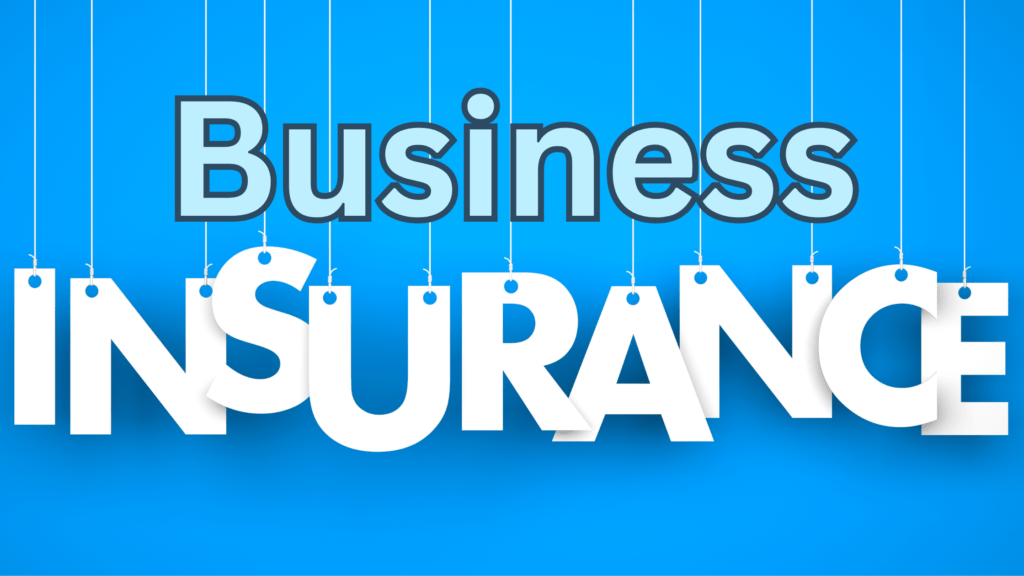Business insurance plays a crucial role in a company’s risk management strategy, offering vital protection against various financial risks and uncertainties. In the UAE’s dynamic and regulated business environment, having the right insurance coverage is not only advantageous but often required. This article delves into the different types of business insurance, highlights their benefits, and examines how UAE regulations influence insurance practices. Whether you’re launching a startup or managing an established business, this guide will help you navigate the essentials of business insurance in the UAE market.
Table of Contents

What is business insurance?
Business insurance is a type of coverage that protects companies from financial losses and risks associated with various operational hazards. It includes several policies, such as property insurance for damage to physical assets, liability insurance for legal claims, workers’ compensation for employee injuries, business interruption insurance for operational disruptions, and professional liability insurance for errors in services.
Types of business insurance
Selecting the appropriate business insurance is crucial to safeguarding your company’s assets and future success. Here’s an in-depth look at common types of coverage:
- Property Insurance: This insurance covers physical assets, such as buildings, equipment, inventory, and furniture, against losses caused by events like fires, theft, vandalism, and natural disasters. It ensures that your business can repair or replace damaged property, minimizing the impact on your operations and financial stability.
- General Liability Insurance: This policy protects your business from financial loss due to bodily injury or property damage resulting from your operations. It covers legal fees, medical expenses, and settlements related to lawsuits filed by third parties. General liability insurance is essential for managing risks associated with accidents and ensuring your business remains financially protected.
- Business Interruption Insurance: This coverage provides financial support when your business is unable to operate due to a covered event, such as a fire or natural disaster. It compensates for lost income and helps cover ongoing expenses like rent and utilities, allowing your business to recover and resume operations without incurring significant financial strain.
- Professional Liability Insurance (Errors and Omissions): This insurance is crucial for professionals such as consultants, accountants, and lawyers. It protects against claims of negligence, errors, or omissions in the performance of their services. Professional liability insurance helps cover legal costs and damages, ensuring that professionals are protected from financial loss due to mistakes or oversights in their work.
- Product Liability Insurance: This policy is designed to cover claims related to injuries or damages caused by products your business manufactures, distributes, or sells. It protects against lawsuits arising from product defects, inadequate instructions, or other issues that could lead to harm. Product liability insurance helps safeguard your business against significant financial losses due to product-related claims.
- Commercial Auto Insurance: This insurance covers vehicles used for business purposes, including company cars, trucks, and vans. It provides protection for damage to your vehicles and liability coverage for accidents involving your employees. Commercial auto insurance ensures that your business vehicles are safeguarded against risks on the road and helps manage the financial impact of vehicle-related incidents.
- Workers’ Compensation Insurance: This coverage offers medical care and wage replacement for employees who are injured or become ill as a result of their work. Workers’ compensation insurance is vital for ensuring that employees receive the necessary support and treatment while also protecting your business from potential lawsuits related to workplace injuries.
- Cyber Liability Insurance: With the increasing threat of cyberattacks and data breaches, cyber liability insurance provides crucial protection against risks related to online security. It covers costs associated with data breaches, including legal fees, notification expenses, and credit monitoring services. Cyber liability insurance helps businesses manage the financial impact of cyber incidents and safeguard sensitive information.

Key Considerations When Choosing Business Insurance
When selecting business insurance, it is essential to consider a range of factors to ensure that your coverage effectively meets your needs and protects your company from potential risks. Here are key considerations to keep in mind:
- Business Type and Industry: Different industries face unique risks and challenges. For instance, a manufacturing business may need extensive property and liability coverage, while a consulting firm might prioritize professional liability insurance. Assess the specific risks associated with your business sector to choose appropriate coverage.
- Coverage Needs: Evaluate your business’s specific needs based on its operations, size, and assets. Consider whether you need property insurance to protect physical assets, liability insurance to cover potential legal claims, or specialized coverage for risks unique to your industry, such as product liability or cyber threats.
- Legal Requirements: Ensure that you meet all local and national insurance requirements for your business. In many jurisdictions, certain types of insurance, such as workers’ compensation or liability insurance, are legally mandated. Compliance is not only a legal obligation but also a crucial step in protecting your business.
- Risk Assessment: Conduct a thorough risk assessment to identify the potential threats and vulnerabilities your business faces. This includes evaluating risks related to property damage, employee safety, operational interruptions, and external threats like cyberattacks. Understanding these risks will help you determine the necessary coverage levels.
- Policy Limits: Carefully review the coverage limits of each insurance policy. Ensure that the limits are sufficient to cover potential losses or claims that could impact your business. Underestimating coverage limits can leave your business exposed to significant financial risk.
- Deductibles and Premiums: Consider the balance between premiums and deductibles. Lower premiums might be appealing but can come with higher deductibles, meaning you’ll pay more out-of-pocket before insurance kicks in. Conversely, higher premiums may reduce deductibles but increase your ongoing costs. Choose an option that aligns with your financial situation and risk tolerance.
- Claims Process: Investigate the insurer’s claims process to ensure it is efficient and straightforward. A smooth claims process is crucial for timely resolution and recovery in the event of a loss. Understand how to file claims, the documentation required, and the typical processing time.
- Insurer Reputation: Research the insurance provider’s reputation for customer service and financial stability. Look for reviews, ratings, and feedback from other businesses to gauge the insurer’s reliability and responsiveness. A reputable insurer is more likely to provide good support and honor claims fairly.
- Coverage Exclusions: Review the policy exclusions and limitations to understand what is not covered. Some policies may have specific exclusions or conditions that could impact your coverage. Being aware of these exclusions helps you avoid surprises and ensures you have the necessary supplementary coverage if needed.
- Customization Options: Look for insurance policies that offer customization to fit your business’s unique needs. Many insurers provide options to tailor coverage with endorsements or add-ons, allowing you to address specific risks or gaps in standard policies. Customization ensures that your insurance is well-suited to the complexities of your business.

Explore 10 Essential Benefits of Business Insurance
Business insurance is crucial for protecting your company’s financial health and stability. It provides financial protection, ensures legal compliance, and supports operational continuity, while also enhancing credibility and offering peace of mind.
Here are 10 essential benefits of business insurance in the UAE
- Financial Protection: Business insurance provides critical financial protection against substantial losses caused by events such as property damage, theft, legal claims, or operational disruptions. This coverage helps ensure that your business can recover and continue operations without suffering severe financial setbacks.
- Legal Compliance: The UAE mandates certain types of insurance, such as health coverage for employees. Complying with these regulations is crucial to avoid legal penalties and fines. Business insurance helps ensure that you meet these legal requirements, allowing you to operate within the law and focus on growing your business.
- Operational Continuity: In the event of a business interruption, such as a natural disaster or equipment failure, business insurance provides financial support to cover lost income and ongoing expenses. This coverage helps maintain operational continuity, enabling you to recover more quickly and resume normal business activities.
- Employee Support: Insurance policies like workers’ compensation and health insurance are designed to support employees by covering medical expenses and providing wage replacement for work-related injuries or illnesses. This not only meets legal obligations but also fosters a positive work environment, enhancing employee satisfaction and retention.
- Enhanced Credibility: Having comprehensive insurance coverage signals to clients, partners, and investors that your business is well-managed and prepared for potential risks. This enhanced credibility can help attract new business opportunities and build trust with stakeholders.
- Risk Management: Business insurance helps manage a wide range of risks, from property damage and liability issues to cyber threats. By transferring these risks to an insurer, you can focus on running your business while having a safety net in place to handle unexpected events.
- Reputation Protection: During crises or negative incidents, such as product recalls or public relations issues, business insurance can include coverage for crisis management and public relations support. This helps mitigate reputational damage and ensure that your company can repair its image and maintain customer trust.
- Claim Dispute Resolution: Insurance policies often provide mechanisms for resolving disputes related to claims. This can include assistance with negotiating settlements and addressing any issues that arise, ensuring that your business is fairly treated, and minimizing the financial impact of legal challenges.
- Customizable Coverage: Many insurance providers offer customizable policies that can be tailored to meet your specific business needs. This flexibility allows you to adjust your coverage as your business grows or faces new risks, ensuring that you always have the protection you need.
- Peace of Mind: Knowing that your business is protected by insurance provides peace of mind for you and your stakeholders. With the assurance that you have a safety net in place, you can focus on strategic planning, growth, and daily operations without the constant worry of potential financial setbacks.
Top 10 Best Health Insurance Companies in the UAE
Disadvantages of Business Insurance
- Cost: Insurance premiums can be a significant expense for businesses, particularly for comprehensive coverage that addresses multiple risks. This ongoing cost can strain the budget, especially for startups, small businesses, or those with tight financial constraints. Balancing the cost of insurance with other operational expenses can be challenging.
- Complexity: Navigating the various types of insurance policies and understanding their terms can be complex. Business owners may struggle with selecting appropriate coverage, deciphering policy language, and managing multiple policies, which can be time-consuming and overwhelming.
- Coverage Limitations: Insurance policies often have exclusions and limitations that may not cover all potential risks. For example, certain types of damage, high-risk activities, or specific scenarios may be excluded from coverage, leaving gaps that could become problematic when claims are filed.
- Deductibles: Many insurance policies come with deductibles, which require businesses to pay a significant amount out-of-pocket before coverage applies. High deductibles can be burdensome, especially for small businesses or those with limited cash flow, impacting their ability to manage unexpected expenses.
- Claim Disputes: The process of filing and settling insurance claims can be fraught with disputes and delays. Insurers may deny claims, dispute coverage details, or drag out the settlement process, which can leave businesses in financial uncertainty and hinder their ability to recover quickly.
- Overlapping Coverage: Businesses might inadvertently purchase overlapping or redundant insurance policies, leading to unnecessary costs. This can occur when multiple policies cover similar risks, resulting in wasted resources without additional protection.
- Administrative Burden: Managing insurance policies involves administrative tasks such as policy renewals, compliance with changing regulations, and record-keeping. This administrative burden can divert time and resources from core business activities, impacting overall efficiency.
- Limited Flexibility: Some insurance policies may offer limited flexibility in adjusting coverage as business needs change. This can be problematic if your business evolves or faces new risks that are not adequately addressed by existing policies.
- False Sense of Security: Relying solely on insurance might lead to complacency in risk management. Businesses may neglect proactive measures to mitigate risks, assuming that insurance will cover all potential losses, which can result in unaddressed vulnerabilities.
- Policy Exclusions: Policies often include specific exclusions or conditions that may not be immediately obvious. These exclusions can limit the effectiveness of coverage and result in unexpected gaps when claims are filed, leading to potential financial strain.

The Impact of UAE Regulations on the Insurance Industry
UAE regulations significantly influence insurance practices in several ways:
- Mandatory Coverage: Regulations often require specific types of insurance, such as health insurance for employees and motor insurance for vehicles, to ensure that businesses meet legal requirements and protect their employees.
- Compliance Standards: Insurance companies must adhere to stringent regulatory standards, including solvency requirements and financial reporting, to ensure they are financially stable and able to meet their obligations.
- Consumer Protection: Regulations safeguard consumers by enforcing transparent policy terms, fair claims processes, and proper handling of disputes, enhancing trust and reliability in the insurance market.
- Regulatory Bodies: The UAE Insurance Authority and other regulatory bodies oversee insurance practices, ensuring that companies comply with laws, maintain ethical standards, and operate within the framework set by the government.
- Market Development: Regulations can shape the insurance landscape by encouraging innovation, fostering competition, and adapting to new market needs, which influences the types and quality of insurance products available.
Overall, UAE regulations play a crucial role in shaping the insurance industry, ensuring both consumer protection and market stability.
Conclusion
In conclusion, business insurance is essential for UAE companies, providing crucial protection against financial risks and regulatory challenges. By choosing the right coverage, businesses ensure compliance, safeguard their assets, and support operational stability. Investing in insurance helps manage risks effectively and supports long-term success in a dynamic market.
FAQs
Q.1: What is the most basic form of business insurance?
The most basic form of business insurance is general liability insurance. This coverage provides fundamental protection for a wide range of common risks faced by businesses, including:
- Bodily Injury: Covers legal and medical expenses if someone is injured on your business premises or due to your business operations.
- Property Damage: This protects against claims if your business operations cause damage to someone else’s property.
- Advertising Injury: Covers claims related to advertising mistakes, such as defamation or copyright infringement.
Q.2: What is commercial umbrella insurance?
Commercial umbrella insurance is extra liability coverage that protects your business from large lawsuits. It kicks in after your primary insurance limits are exhausted, safeguarding your assets from financial ruin.


